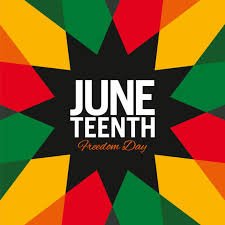Have you ever wondered why African-Americans, and Africans in America are so passionate about Juneteenth day ? Here is your explanation why …
Juneteenth, officially Juneteenth National Independence Day, is a federal holiday in the United States. It is celebrated annually on June 19 to commemorate the end of slavery in the United States. The holiday’s name, first used in the 1890s, is a combination of the words June and nineteenth, referring to June 19, 1865, the day when Major General Gordon Granger ordered the final enforcement of the Emancipation Proclamation in Texas at the end of the American Civil War.
This year marks the 156th annual Juneteenth celebration, which is observed every June 19
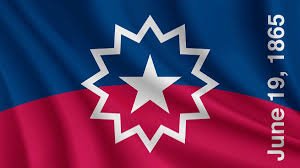
What is Juneteenth? Juneteenth is a holiday commemorating the end of slavery in the United States. It is also called Emancipation Day or Juneteenth Independence Day. The name Juneteenth references the date of the holiday, combining the words June and nineteenth.
Juneteenth, also known as Juneteenth Independence Day, Freedom Day, or Emancipation Day, is a federal holiday celebrated on June 19th. It commemorates the day in 1865 when enslaved people in Galveston, Texas, learned of their freedom, two and a half years after the Emancipation Proclamation. It’s a celebration of African American culture and heritage and a recognition of the ongoing fight for equality and justice.
Juneteenth takes place annually on June 19 and marks the true end of slavery in the United States. The holiday was already recognized in 48 states and Tuesday night, the U.S. Senate voted to make the day an official federal holiday.
The holiday observes the end of slavery in the U.S. when slaves in Galveston, Texas, were finally informed of their freedom upon the arrival of federal troops on June 19, 1865 — two years after President Abraham Lincoln signed the Emancipation Proclamation and about two months after the end of the Civil War.
Here’s the significance and history behind the holiday.
When Is Juneteenth?
Juneteenth, a portmanteau of June and nineteenth, is an annual celebration marking the end of the slavery in the U.S. The holiday commemorates a specific date — June 19, 1865, the day many enslaved people in Texas learned they had been freed.
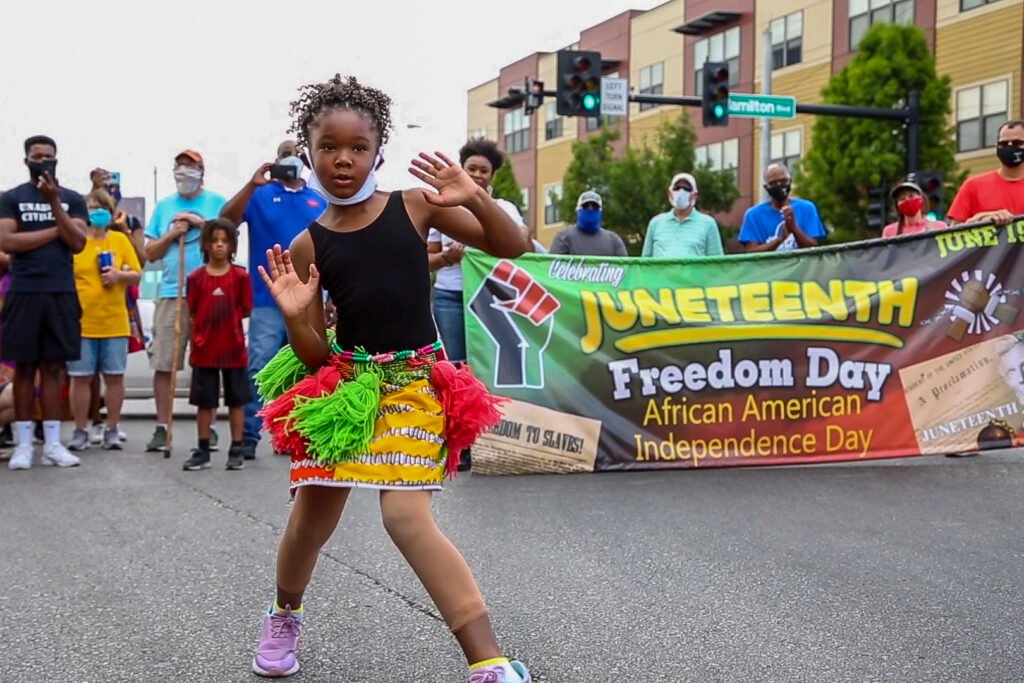
President Abraham Lincoln signed the Emancipation Proclamation on Jan. 1, 1863, announcing that enslaved people “shall be then, thenceforward, and forever free,” but the proclamation didn’t immediately apply in certain areas, including secessionist states like Texas, which had left the Union and joined the Confederacy during the Civil War. But then, it took another two years for the news to be enacted in Texas. The Civil War ended in April 1865 and two months later, on June 19, 1865, Maj. Gen. Gordon Granger of the Union Army issued General Order No. 3 in Galveston, Texas, with Granger saying, “The people of Texas are informed that, in accordance with a proclamation from the Executive of the United States, all slaves are free.”
Slavery was formally abolished after Congress ratified the 13th Amendment to the U.S. Constitution nearly six months later, on Dec. 6, 1865. Freed enslaved people marked June 19 the following year, kicking off the first celebration of Juneteenth.
Juneteenth is also known as Black Independence Day, Emancipation Day, Freedom Day, Juneteenth Independence Day or Juneteenth National Freedom Day.
The History of Juneteenth
In the Civil War period, slavery came to an end in various areas of the United States at different times. Many enslaved Southerners escaped, demanded wages, stopped work, or took up arms against the Confederacy of slave states. In January 1865, Congress proposed the Thirteenth Amendment to the United States Constitution for the national abolition of slavery. By June 1865, almost all of the enslaved population had been freed by the victorious Union Army or by state abolition laws. When the national abolition amendment was ratified in December, the remaining enslaved people in Delaware and in Kentucky were freed.
Early Juneteenth celebrations date back to 1866, at first involving church-centered community gatherings in Texas. They spread across the South among newly freed African-Americans and their descendants and became more commercialized in the 1920s and 1930s, often centering on a food festival. Participants in the Great Migration brought these celebrations to the rest of the country. During the Civil Rights Movement of the 1960s, Juneteenth celebrations were eclipsed by the nonviolent determination to achieve civil rights, but they grew in popularity again in the 1970s, with a focus on African-American freedom and African-American arts. Beginning with Texas by proclamation in 1938, and by legislation in 1979, every U.S. state and the District of Columbia has formally recognized the holiday in some way.
Juneteenth is also celebrated by the Mascogos, descendants of Black Seminoles who escaped from slavery in 1852 and settled in Coahuila, Mexico.
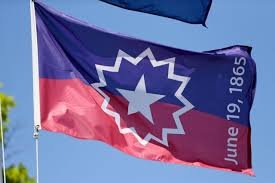
The day was recognized as a federal holiday in 2021, when the 117th U.S. Congress enacted and President Joe Biden signed the Juneteenth National Independence Day Act into law. Juneteenth became the first new federal holiday since Martin Luther King Jr. Day was adopted in 1983.
Texas was the first state to establish Juneteenth as a state holiday. The late Rep. Al Edwards of Houston, a Democratic congressman, wrote and sponsored a bill calling for “Emancipation Day in Texas” to be recognized as a “legal holiday.” He filed Bill 1016 in February 1979 and it passed in the Texas House of Representatives and Texas Senate the following May. Texas Republican Gov. William Clements signed the bill in June 1979 and the bill officially went into effect on Jan. 1, 1980.
Today, 48 states along with the District of Columbia recognize Juneteenth as “a holiday or observance.” Only Hawaii and South Dakota do not yet recognize Juneteenth as a state holiday or day of observance.
That could soon change, since the Senate unanimously passed a bill on June 15 to make the day a federal holiday. The measure next goes to the House and if it passes, Juneteenth will become the 11th federal holiday.
The holiday is considered the “longest-running African-American holiday” and has been called “America’s second Independence Day”. Juneteenth falls on June 19 and has often been celebrated on the third Saturday in June. Historian Mitch Kachun notes that celebrations of the end of slavery have three goals: “to celebrate, to educate, and to agitate.”
Juneteenth Celebrations
Juneteenth has grown from a national holiday into a global one with a variety of celebrations worldwide, including cookouts, festivals, marches, pageants, parades, picnics, rodeos, readings and vigils. Events commemorate African American culture, achievements and food, while honoring a monumental change in American history.
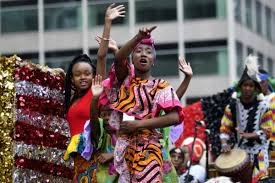
Early celebrations consisted of baseball, fishing, and rodeos. African Americans were often prohibited from using public facilities for their celebrations, so instead they were typically held at churches or outdoors near bodies of water. Celebrations were characterized by elaborate large meals and people wearing their best clothing. It was common for formerly enslaved people and their descendants to make a pilgrimage to Galveston, Texas, where the announcement of emancipation had originally taken place. News coverage of early festivals, Janice Hume and Noah Arceneaux state, “served to assimilate African-American memories within the dominant ‘American story'”.
Modern observance is primarily in local celebrations. In many places, Juneteenth has become a multicultural holiday. Traditions include public readings of the Emancipation Proclamation which promised freedom, singing traditional songs such as “Swing Low, Sweet Chariot” and “Lift Every Voice and Sing”, and reading of works by noted African-American writers, such as Ralph Ellison and Maya Angelou. Celebrations include picnics, rodeos, street fairs, cookouts, family reunions, park parties, historical reenactments, blues festivals, and Miss Juneteenth contests. Red food and drinks are traditionally served during the celebrations, including red velvet cake and strawberry soda, with red meant to represent resilience and joy.
Juneteenth celebrations often include lectures and exhibitions on African-American culture. The modern holiday places much emphasis on teaching about African-American heritage. Karen M. Thomas writes in Emerge that “community leaders have latched on to [Juneteenth] to help instill a sense of heritage and pride in black youth.” Celebrations are commonly accompanied by voter registration efforts, the performing of plays, and retelling stories. The holiday is also a celebration of soul food and other cuisine with African-American influences. In Tourism Review International, Anne Donovan and Karen DeBres write that “Barbecue is the centerpiece of most Juneteenth celebrations.” Major news networks host specials and marathons on national outlets featuring prominent Black voices.
Many universities and private companies have joined state governments in recognizing Juneteenth as an official holiday. The NFL declared Juneteenth a league holiday in 2020, following in the footsteps of companies like Nike and Twitter.
Additional Sources: nbc Philadelphia , Wikipedia


